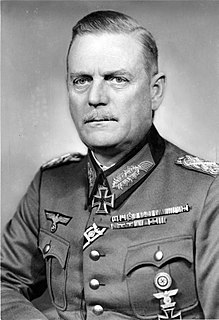A Quote by Louise J. Kaplan
In all times and in all places--in Constantinople, northwestern Zambia, Victorian England, Sparta, Arabia, . . . medieval France,Babylonia, . . . Carthage, Mahenjo-Daro, Patagonia, Kyushu, . . . Dresden--the time span between childhood and adulthood, however fleeting or prolonged, has been associated with the acquisition of virtue as it is differently defined in each society. A child may be good and morally obedient, but only in the process of arriving at womanhood or manhood does a human being become capable of virtue--that is, the qualities of mind and body that realize society's ideals.
Quote Topics
Acquisition
Adulthood
All Time
Arabia
Arriving
Associated
Be Good
Become
Been
Being
Between
Body
Capable
Carthage
Child
Childhood
Constantinople
Defined
Differently
Does
Dresden
Each
England
Fleeting
France
Good
However
Human
Human Being
Ideals
Manhood
May
Medieval
Mind
Mind And Body
Morally
Northwestern
Obedient
Only
Patagonia
Places
Process
Qualities
Realize
Society
Span
Sparta
Time
Times
Victorian
Virtue
Womanhood
Zambia
Related Quotes
We may... affirm that the balance of power in a society accompanies the balance of property in land. The only possible way, then, of preserving the balance of power on the side of liberty and public virtue is to make the acquisition of land easy to every member of society; to make a division of the land into small quantities, so that the multitude may be possessed of landed estates.
If a man of good natural disposition acquires Intelligence [as a whole], then he excels in conduct, and the disposition which previously only resembled Virtue, will now be Virtue in the true sense. Hence just as with the faculty of forming opinions [the calculative faculty] there are two qualities, Cleverness and Prudence, so also in the moral part of the soul there are two qualities, natural virtue and true Virtue; and true Virtue cannot exist without Prudence.
The society of Christendom and especially of Western Christendom up to the explosion, which we call the Reformation, had been a society of owners: a Proprietarial Society. It was one in which there remained strong bonds between one class and another, and in which there was a hierarchy of superior and inferior, but not, in the main, a distinction between a restricted body of possessors and a main body of destitute at the mercy of the possessors, such as our society has become.
Absolute Evil is not the kingdom of hell. The inhabitants of hell are ourselves, i.e., those who pay our painful, embarrassing, humanistic duties to society and who are compromised by our intellectually dubious commitment to virtue, which can be defined by the perpetual smear-word of French polemic: the bourgeois. (Bourgeois equals humanist.) This word has long been anathema in France where categories are part of the ruling notion of logique. The word cannot be readily matched in England or America.
Every man is responsible for defending every woman and every child. When the male no longer takes this role, when he no longer has the courage or feels the moral responsibility, then that society will no longer be a society where honor and virtue are esteemed. Laws and government cannot replace this personal caring and commitment. In the absence of the Warrior protector, the only way that a government can protect a society is to remove the freedom of the people. And the sons and daughters of lions become sheep.
Tolerance is the last virtue of a depraved society. When an immoral society has blatantly and proudly violated all the commandments, it insists upon one last virtue, tolerance for its immorality. It will not tolerate condemnation of its perversions. It creates a whole new world in which only the intolerant critic of intolerable evil is evil.
Each era invents its own child. Over the past 500 years, conceptions of the child changed gradually from an ill-formed adult who must be subjugated to society's goals to a precious being who must be protected from unreasonable social demands. Childhood has come to be seen as a special period of life, rather than as a temporary state of no lasting importance for adulthood.
These are the voices which we hear in solitude, but they grow faint and inaudible as we enter into the world. Society everywhere is in conspiracy against the manhood of everyone of its members. Society is a joint-stock company, in which the members agree, for the better securing of his bread to each shareholder, to surrender the liberty and culture of the eater. The virtue in most request is conformity. Self-reliance is its aversion. It loves not realities and creators, but names and customs.































